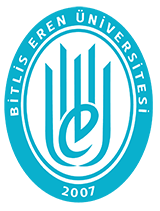| dc.contributor.author | İNAĞ, Tuğçe | |
| dc.contributor.author | ARIKAN, Murat | |
| dc.date.accessioned | 2024-05-02T12:39:06Z | |
| dc.date.available | 2024-05-02T12:39:06Z | |
| dc.date.issued | 2024 | |
| dc.identifier.issn | 2147-3188 | |
| dc.identifier.uri | http://dspace.beu.edu.tr:8080/xmlui/handle/123456789/14950 | |
| dc.description.abstract | The escalating global population and increased vehicle usage have worsened traffic congestion in metropolitan areas, a significant urban challenge. Addressing this, adaptive traffic light control methods, especially at intersections, are being developed to improve traffic flow and reduce waiting times. This study significantly contributes to this field by implementing Fuzzy Logic in intelligent traffic light systems, focusing on Ankara's Polatlı Refik Cesur intersection. Using the SUMO simulation platform and Python | tr_TR |
| dc.language.iso | English | tr_TR |
| dc.publisher | Bitlis Eren Üniversitesi | tr_TR |
| dc.rights | info:eu-repo/semantics/openAccess | tr_TR |
| dc.subject | ANFIS, fuzzy logic | tr_TR |
| dc.subject | SUMO | tr_TR |
| dc.subject | intelligent traffic light control | tr_TR |
| dc.subject | traffic congestion | tr_TR |
| dc.subject | traffic simulation | tr_TR |
| dc.subject | adaptive traffic control | tr_TR |
| dc.subject | intelligent transportation systems | tr_TR |
| dc.title | A Fuzzy Based Intelligent Traffic Light Control (ITLC) Method: An Implementation in Ankara City | tr_TR |
| dc.type | Article | tr_TR |
| dc.identifier.issue | 1 | tr_TR |
| dc.identifier.startpage | 292 | tr_TR |
| dc.identifier.endpage | 306 | tr_TR |
| dc.relation.journal | Bitlis Eren Üniversitesi Fen Bilimleri Dergisi | tr_TR |
| dc.identifier.volume | 13 | tr_TR |














